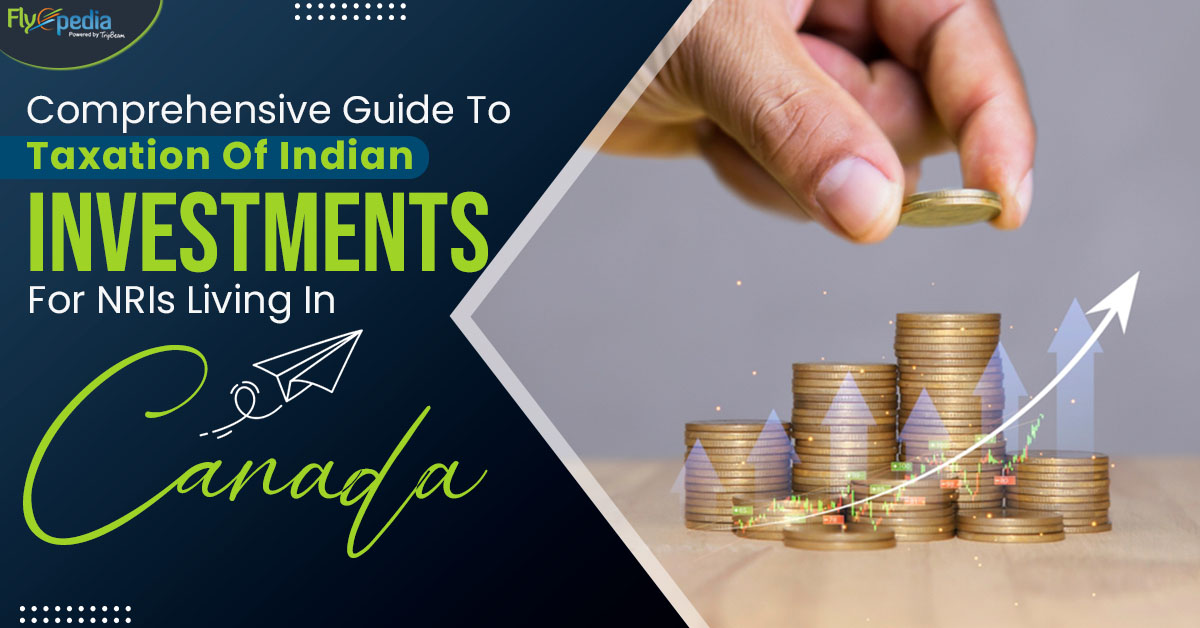If you are an NRI (non – resident Indian) based in Canada, you may have investments in India. And why not? After all, India is recently diversifying its investment landscape to attract global NRIs and more. This is why Flyopedia is here to explain about the taxes that apply to your income and profits from Indian investments. Learn more about this before you grab last minute flight to India today!
All You Need To Know About Taxation Of Indian Investments For NRIs Living In Canada
Since you have Indian investments as an NRI based in Canada, it is important to learn the details about taxation. This will help you understand the tax implications while reducing the issues of double taxation. In turn, you get to know where you are exempt from taxes and where you save better. Here is a brief overview of taxation on Indian investments for Canadian NRIs.
Can you avoid double taxation if you are a Canadian NRI with Indian investments?
Yes, it is possible. The Double Taxation Avoidance Agreement (DTAA) plays a major role to avoid double taxation on Indian investments for Canadian NRIs. It integrates 2 major approaches between Canada and India. These are
- The person’s income is only taxed in their country of residence under the exemption process.
- The tax credit method allows taxpayers to reduce their domestic tax liability. This is done by the amount of foreign taxes they’ve already paid.
This means you need to learn more about the documents needed to avoid double taxation. Learn how you can do this before you grab affordable international Canada to India flights with us.
What documents do you need to avoid double taxation when you are a Canadian NRI with Indian investments?
You may be concerned about double taxation when you are an NRI residing in Canada with Indian investments. However, you can easily avoid this issue with 2 documents. Here, you will need
Form 10F
Form 10F acts as a declaration which contains your personal details such as name, address, TIN (tax identification number), PAN, etc. This document is a pre -requisite to claim DTAA benefits between India and Canada. This is regardless of the fact that TRC may or may not contain all the information Indian tax authorities require. However, you may be able to skip it (if and only if) the TRC has everything the Indian tax authorities need. Otherwise, you need to fill and sign Form 10F, and submit it with the TRC.
Tax Residency Certificate (TRC)
Tax Residency Certificate is issued by the Canadian tax authority. A TRC verifies the NRI’s residential status in Canada for a specific financial year. If you want to enjoy exemptions or lower tax rates, having a TRC changes the game. Using this, you can claim the benefits that the DTAA between India and Canada offers. Additionally, this is submitted to the Indian tax authorities, the banks, the mutual fund houses, or the portfolio managers.
Here is your conclusion
Taxation of Indian investments is a dynamic topic which requires careful research, planning and compliance. However, it is still possible when you know the minutiae about it. Learning about taxation on your income and gains on Indian investments will help you avoid double taxes. It will also help you save more money. So, here is everything you should know about taxation. Now all that’s left is to get direct flights from Canada to India with us! Pack up and explore new investments now!
Also Read: NRI Handbook: Everything You Need To Know


